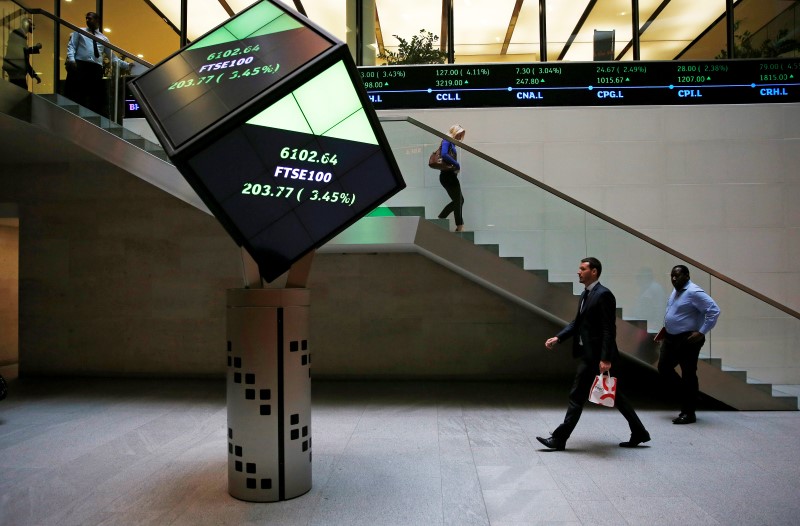By Kit Rees
LONDON (Reuters) - UK shares retreated on Tuesday as sliding oil prices and concerns over a slowdown in China put pressure on commodities-related stocks, while British banks fell after UBS cut target prices.
Britain's blue-chip FTSE 100 index was down 1 percent at 5,820.91 points by 1005 GMT, slightly underperforming the broader European market.
Oil majors Royal Dutch Shell (L:RDSa) and BP (L:BP) fell 1.1 percent and 1.2 percent respectively after oil prices slid under $30 a barrel on persistent worries about oversupply and further signs of weakness in the Chinese economy. [O/R]
Data showed that China's rail freight volume dropped 11.9 percent in 2015 from a year earlier to 3.36 billion tonnes.
Chinese stocks fell more than 6 percent on Tuesday following another round of panic selling triggered by a new slide in global equity markets.
China has a crucial influence on commodities prices as the world's second-biggest economy and a major consumer of oil and metals.
"The slowdown in the Chinese economy is something that's on commodities stocks traders' minds," said IG market analyst David Madden.
Investors sought safety in gold, with precious metals miners Randgold Resources (L:RRS) and Fresnillo (L:FRES) rising 2 percent and 2.2 percent respectively as the gold price rose. [GOL/]
Analysts also said a weaker U.S. dollar was lending support to the price of gold. The Fed meeting begins today, with the U.S. central bank expected to keep rates on hold.
"Further support for gold comes from a slightly weaker U.S. dollar as markets price in expectations of a dovish Fed message tomorrow, given the market turmoil," said Mike van Dulken, head of research at Accendo Markets.
Other miners were also in positive territory, led higher by Anglo American (L:AAL) which rose 5.5 percent after De Beers' rough diamond sales during the first cycle of the year improved significantly to $540 million, compared to $248 million at the final sales cycle of 2015.
Antofagasta, Glencore (L:GLEN) and Rio Tinto (L:RIO) all advanced between 0.3 percent and 2.6 percent.

British banks, however, were under pressure, with Barclays (L:BARC) falling 2.2 percent after UBS cut its price target.